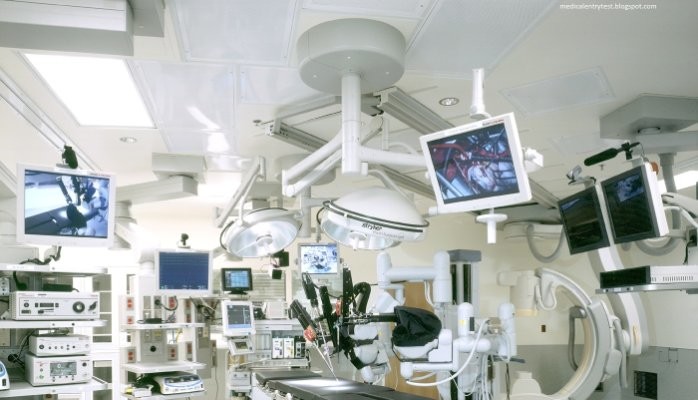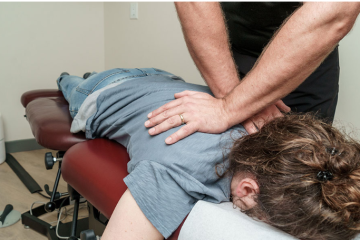In the intricate tapestry of healthcare delivery, medical equipment stands as a cornerstone, enabling clinicians to diagnose, treat, and monitor patients with precision and efficacy.
From state-of-the-art imaging systems to life-saving surgical tools, the importance of medical equipment in delivering quality care cannot be overstated. Yet, the process of selecting, procuring, and integrating medical equipment into healthcare facilities is a complex endeavor fraught with challenges.
This is where medical equipment planning consultants step in, wielding their expertise to navigate the intricate terrain of healthcare infrastructure and ensure the seamless integration of cutting-edge technology.
This article explores the pivotal role of medical equipment planning consultants, shedding light on their methodologies, challenges, and transformative impact on healthcare delivery systems worldwide.
The Significance of Medical Equipment Planning
In today’s healthcare landscape, the strategic deployment of medical equipment is integral to the delivery of safe, effective, and patient-centered care. Medical equipment planning encompasses a comprehensive array of services aimed at optimizing the selection, procurement, installation, and maintenance of medical devices within healthcare facilities.
Whether designing a new hospital wing, renovating an existing clinic, or upgrading technology infrastructure, medical equipment planning consultants play a critical role in aligning equipment solutions with clinical workflows, regulatory requirements, and budgetary constraints.
Key Areas of Expertise
Medical equipment planning consultants offer a breadth of expertise across various domains, including:
Needs Assessment: Consultants conduct thorough needs assessments to understand the unique requirements and clinical workflows of healthcare facilities. This involves collaborating closely with clinicians, administrators, and other stakeholders to identify equipment needs, assess capacity requirements, and anticipate future demands.
Technology Evaluation: With rapid advancements in medical technology, staying abreast of the latest innovations is paramount. Medical equipment planning consultants evaluate emerging technologies, assess their clinical utility, and recommend solutions that align with the strategic objectives and clinical specialties of healthcare organizations.
Procurement and Vendor Management: From conducting competitive bids to negotiating contracts and managing vendor relationships, consultants oversee the procurement process from start to finish. They ensure that equipment purchases are made in accordance with budgetary constraints, quality standards, and regulatory requirements.
Space Planning and Design Integration: Integrating medical equipment seamlessly into healthcare facility designs requires meticulous planning and coordination. Consultants collaborate with architects, engineers, and interior designers to optimize space utilization, ensure compliance with building codes, and create ergonomic environments conducive to efficient care delivery.
Workflow Optimization: Effective medical equipment planning goes beyond the selection of individual devices; it encompasses the optimization of clinical workflows and operational processes. Consultants work closely with healthcare providers to design efficient workflows, minimize bottlenecks, and enhance patient throughput while maintaining high standards of care.
Methodologies and Approaches
Medical equipment planning consultants employ a variety of methodologies and approaches tailored to the unique needs and circumstances of each project. These may include:
Workflow Analysis: Consultants conduct comprehensive workflow analyses to identify inefficiencies, redundancies, and areas for improvement. By mapping out clinical processes and interactions, they gain insights into equipment utilization patterns and user preferences, informing equipment selection and placement decisions.
Technology Assessment: Assessing the clinical utility, reliability, and cost-effectiveness of medical devices is central to the planning process. Consultants leverage evidence-based methodologies, such as technology assessments and comparative effectiveness research, to evaluate the clinical efficacy and value proposition of equipment solutions.
Risk Management: Mitigating risks associated with medical equipment failures and malfunctions is paramount for patient safety. Consultants conduct risk assessments, develop contingency plans, and ensure compliance with regulatory standards to minimize the likelihood of adverse events and liability issues.
Change Management: Implementing new medical equipment can disrupt established workflows and routines, necessitating effective change management strategies. Consultants work collaboratively with healthcare providers to anticipate and address resistance to change, foster stakeholder buy-in, and facilitate a smooth transition to new equipment solutions.
Training and Education: Ensuring that healthcare providers are proficient in the use of medical equipment is essential for maximizing its clinical impact. Consultants develop customized training programs, user manuals, and educational resources to equip staff with the knowledge and skills needed to operate equipment safely and effectively.
Transformative Impact
The impact of medical equipment planning consultancy extends far beyond the procurement and installation of devices; it encompasses broader systemic improvements in healthcare delivery. Some of the transformative impacts include:
Enhanced Patient Care: By optimizing the selection, placement, and integration of medical equipment, consultants contribute to the delivery of high-quality, patient-centered care. Streamlined workflows, intuitive interfaces, and ergonomic design features enhance clinicians’ ability to deliver timely and effective interventions, leading to improved patient outcomes.
Operational Efficiency: Well-planned medical equipment deployments translate into enhanced operational efficiency and resource utilization. By minimizing equipment downtime, reducing unnecessary steps in clinical workflows, and maximizing equipment utilization rates, consultants help healthcare organizations achieve greater productivity and cost-effectiveness.
Regulatory Compliance: Navigating the complex landscape of regulatory requirements and accreditation standards is essential for healthcare organizations. Medical equipment planning consultants ensure compliance with applicable regulations, such as the FDA’s Quality System Regulation (QSR) and the Joint Commission’s standards, mitigating the risk of compliance-related penalties and legal liabilities.
Strategic Alignment: Aligning medical equipment investments with strategic objectives is crucial for long-term organizational success. Consultants help healthcare providers prioritize equipment purchases based on clinical need, financial feasibility, and strategic alignment with organizational goals, ensuring that investments yield maximum value and return on investment.
Future Readiness: Anticipating future trends and technological advancements is essential for ensuring that healthcare facilities remain at the forefront of innovation. Consultants help organizations future-proof their technology infrastructure by selecting flexible, interoperable equipment solutions that can adapt to evolving clinical needs and technological advancements.
Conclusion
In an era of rapid technological innovation and evolving patient expectations, the role of medical equipment planning consultancy has never been more critical.
By leveraging their expertise in needs assessment, technology evaluation, procurement, and workflow optimization, consultants empower healthcare organizations to make informed decisions, optimize resource allocation, and deliver high-quality care to patients worldwide.
As healthcare continues to evolve, the importance of strategic medical equipment planning will only grow, shaping the future of healthcare delivery and driving meaningful improvements in patient outcomes and organizational performance.




